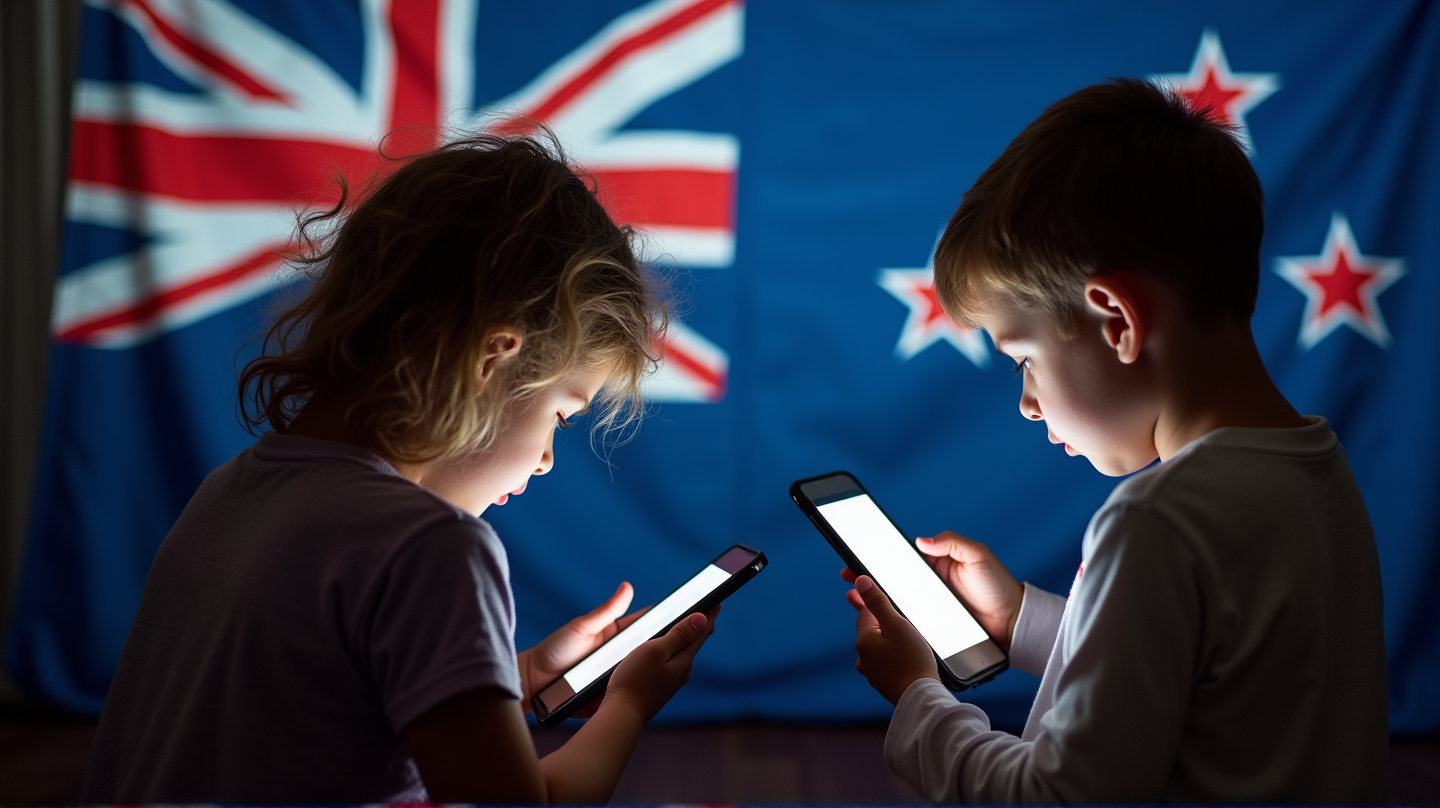In what could be a landmark initiative in the realm of online safety for children, New Zealand’s Prime Minister, Christopher Luxon, has made waves with a bold proposition to restrict social media access for children under 16. This announcement, made on Tuesday, May 6th, is a response to escalating concerns about the safety of young users in an increasingly digital world. Luxon’s proposal highlights a confronting reality—social media, while beneficial, can harbor dangers that few regulations currently mitigate.
Safeguarding the Future
With the draft legislation demanding that social media giants verify user ages, New Zealand aims to enforce accountability, with steep penalties reaching NZ$2 million for any breach. This echoes the stringent measures recently adopted by neighboring Australia, positioning New Zealand as an emerging leader in protecting children in digital spaces.
Luxon articulated his mission with clarity, stating the imperative for social media platforms to shoulder more responsibility in shielding the youth from harmful content and cyberbullying. There is hope for cross-party collaboration to push this legislation through, underscoring its significance and the pressing public demand.
Building Consensus: A Mother’s Perspective
National Party lawmaker Catherine Wedd, the bill’s architect, lends a personal touch to the legislative push. As a parent herself, she echoes the sentiment of many guardians who find themselves entrapped in a constant battle to regulate their children’s online activities. “Families and parents should have better resources and support,” Wedd asserts, capturing the essence of a global parental dilemma.
Although the specific platforms to be regulated remain unspecified, the legislation reflects an increasing awareness and proactive stance against the unrestricted digital exposure currently prevalent in their lives. The focus remains staunchly on invoking long-term, positive change.
A Growing Trend in Global Policy
This legislative movement isn’t insular. New Zealand’s latest steps resemble those undertaken in Australia, where similarly tough regulations are set to revolutionize the digital space for young users by December. While YouTube remains exempt for educational purposes, other platforms grapple with the impending change, debating potential challenges and the laws’ broader implications.
According to Dimsum Daily, this move by New Zealand aligns with burgeoning international efforts to regulate social media effectively, balancing the scales between digital freedom and safety.
Addressing the Critics
Despite its well-intentioned objectives, the proposal has faced the ire of tech behemoths. The giants of Silicon Valley argue that such policies are rushed and poorly defined, raising questions around practical enforcement and implementation. Nevertheless, with growing concern amongst parents and educators alike, there seems to be a resolute push for this crucial reform.
In conclusion, Luxon’s proposal stands as an illustrative example of a government’s duty to navigate the delicate equilibrium of regulating technology for the sake of its youngest citizens’ safety, setting a precedent that could resonate worldwide.
